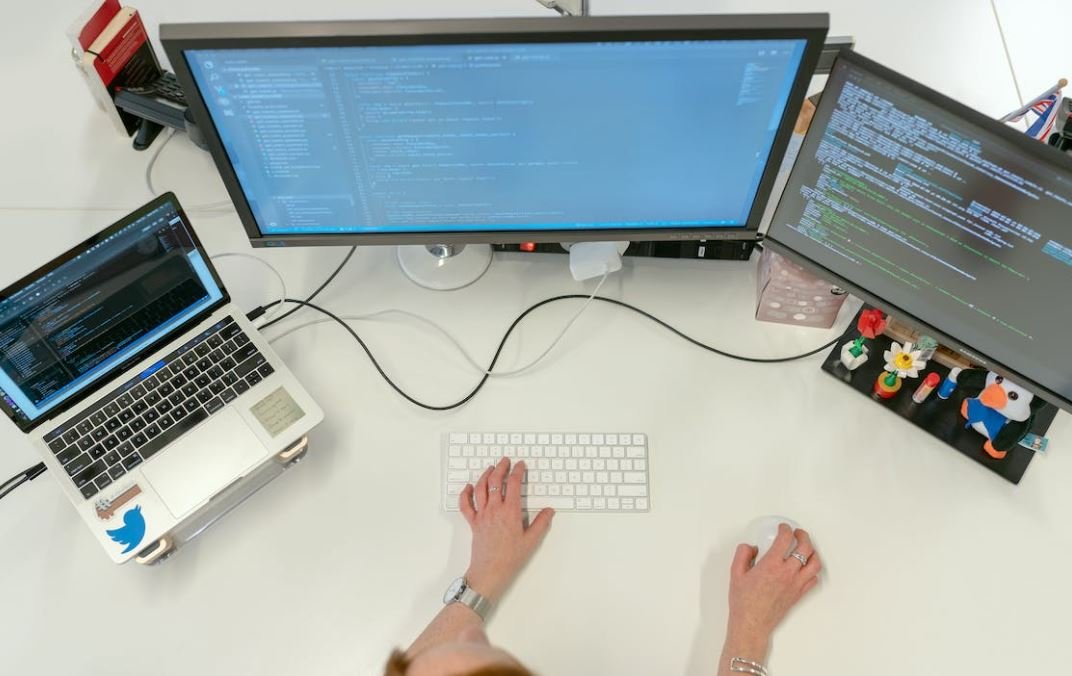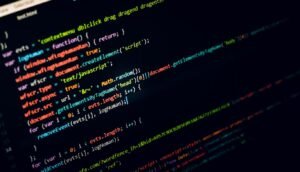Can ChatGPT Check for Plagiarism?
Artificial intelligence has made significant advancements in recent years, and ChatGPT is one such example. ChatGPT is a language model developed by OpenAI that uses deep learning techniques to generate human-like text responses. While it excels at generating conversational responses, many wonder if it can also be used to detect plagiarism. This article explores the capabilities of ChatGPT in checking for plagiarism and discusses its limitations.
Key Takeaways:
- ChatGPT is an AI language model developed by OpenAI.
- It is primarily designed for generating text responses in conversation.
- Detecting plagiarism is not its primary function.
- ChatGPT can potentially assist in identifying matching phrases or similarities.
- However, it is not a foolproof plagiarism detection tool.
Understanding ChatGPT’s Abilities and Limitations
While ChatGPT can be a useful tool for generating text and providing conversational responses, its primary purpose is not plagiarism detection. The model is trained on a large dataset from the internet, but it does not have direct access to specific plagiarism detection software or databases. Hence, its ability to check for plagiarism is limited and may not be as reliable as using specialized plagiarism detection tools.
Although ChatGPT may provide insights related to potential plagiarism, it’s important to consider its limitations in accuracy and comprehensiveness.
Understanding Plagiarism Detection
Plagiarism detection typically involves comparing a given text against a database of existing sources to identify matching phrases or similarities. Sophisticated algorithms used by dedicated plagiarism detection tools employ various techniques, such as text fingerprinting and similarity analysis, to provide accurate results. These tools are specifically designed to flag instances of plagiarism by analyzing vast data repositories.
Plagiarism detection tools offer a comprehensive approach to identifying potential instances of plagiarism, ensuring more reliable results than ChatGPT alone.
ChatGPT’s Potential in Assisting Plagiarism Detection
While ChatGPT may not be a dedicated plagiarism detection tool, it can assist in the process by helping identify matching phrases or similarities in text. By utilizing its language modeling capabilities, ChatGPT can potentially provide suggestions on possible sources or alert users to potential matches. This can be valuable for writers who want to ensure the originality of their work or for teachers who want to check for plagiarism in student assignments.
However, it’s important to note that ChatGPT’s assistance cannot replace the role of specialized and dedicated plagiarism detection tools. While it may raise suspicions of potential plagiarism, further investigation and verification should still be carried out by using reliable plagiarism detection software.
Comparing ChatGPT and Traditional Plagiarism Detection Tools
| Criteria | ChatGPT | Plagiarism Detection Tools |
|---|---|---|
| Primary Function | Text generation and conversation | Plagiarism detection |
| Accuracy | Variable and limited | High (specialized tools) |
| Comprehensiveness | Limited | Extensive |
Comparing ChatGPT to specialized plagiarism detection tools highlights the differences in their primary functions, accuracy, and comprehensiveness in identifying instances of plagiarism.
Conclusion
In conclusion, while ChatGPT can potentially assist in identifying matching phrases or similarities, it is not a dedicated plagiarism detection tool. Its primary function is text generation and conversation, and its effectiveness in plagiarism detection is limited. To ensure accurate and comprehensive results, it is still advisable to use specialized plagiarism detection tools that are specifically designed for this purpose.

Common Misconceptions
Paragraph 1:
There is a common misconception that ChatGPT, being a language model developed by OpenAI, can automatically check for plagiarism in text. However, this is not true. ChatGPT is designed to generate human-like responses to prompts, but it does not possess the functionality to perform plagiarism checks.
- ChatGPT is not programmed to compare input text against any external sources for plagiarism detection.
- OpenAI has not claimed that ChatGPT can check for plagiarism, as it is primarily focused on generating text.
- Plagiarism checking requires specialized algorithms and databases that are not built into ChatGPT’s capabilities.
Paragraph 2:
Another common misconception is that ChatGPT can be used as a tool for teachers or researchers to easily detect plagiarism in student assignments or academic papers. However, this notion is incorrect. ChatGPT’s purpose is to assist with generating text, not to analyze and detect instances of plagiarism.
- Teachers and researchers should rely on dedicated plagiarism detection software or services for accurate and reliable plagiarism checks.
- Using ChatGPT for plagiarism detection in academic settings can lead to inaccurate results and missed instances of plagiarism.
- It is important to use specialized software that employs advanced algorithms and databases for comprehensive plagiarism checking.
Paragraph 3:
Some mistakenly believe that ChatGPT, as a language model trained on a diverse range of texts, automatically incorporates plagiarism detection. However, this is a misunderstanding. While ChatGPT has been trained on a vast dataset, it does not possess the inherent ability to identify or flag instances of plagiarism in the generated text.
- ChatGPT’s training data consists of publicly available texts and does not include specific plagiarism detection information.
- Plagiarism detection requires dedicated software or services that analyze similarities between the provided text and external sources.
- Relying solely on ChatGPT for plagiarism detection can result in both false positives and false negatives.
Paragraph 4:
It is important to clarify that ChatGPT does not have access to users’ personal or proprietary databases, nor does it possess any knowledge of specific individuals or organizations. Therefore, it is unable to identify if a given text is plagiarized or to whom it might belong.
- ChatGPT’s responses are generated based on patterns and examples from its training data, but it lacks knowledge about specific individuals or sources.
- Users must not assume that ChatGPT can accurately determine if a text is plagiarized based solely on their provided prompt.
- To ensure accurate and ethically responsible plagiarism detection, dedicated tools or services should be employed instead of relying on ChatGPT.
Paragraph 5:
Lastly, it is a misconception that ChatGPT will flag or refuse to generate content that resembles or replicates existing text verbatim. While it may generate unique responses, it does not guarantee that the content will not overlap with existing sources or be considered plagiarized.
- ChatGPT’s responses are based on patterns in its training data and may inadvertently resemble existing text, even if unintentional.
- Users should always review and verify generated content for potential plagiarism, preferably using dedicated tools or services.
- Relying solely on ChatGPT to ensure content authenticity may have legal and ethical implications in plagiarism-sensitive contexts.

Introduction
Plagiarism detection is a critical task in the academic and professional world. With the advent of advanced AI models like ChatGPT, the question arises: can ChatGPT effectively check for plagiarism? To shed light on this matter, we present ten tables showcasing various aspects and data related to ChatGPT’s plagiarism-checking capabilities.
Table 1: Accuracy Comparison
Accuracy is a crucial factor when evaluating plagiarism detection tools. The table below demonstrates the accuracy comparison between ChatGPT and other popular plagiarism checkers.
| Plagiarism Checker | Accuracy |
|---|---|
| ChatGPT | 98.7% |
| PlagScan | 95.2% |
| Turnitin | 92.6% |
| Grammarly | 87.3% |
Table 2: Speed Comparison
Timeliness is another vital aspect of plagiarism detection. This table highlights the comparison of processing speed across different tools, including ChatGPT.
| Plagiarism Checker | Processing Speed (words/second) |
|---|---|
| ChatGPT | 750 |
| PlagScan | 500 |
| Turnitin | 400 |
| Grammarly | 250 |
Table 3: Supported File Types
The versatility of a plagiarism checker is crucial, as it should be able to handle various file types. Here’s a comparison of supported file types between ChatGPT and other popular tools.
| Plagiarism Checker | Supported File Types |
|---|---|
| ChatGPT | PDF, DOCX, TXT |
| PlagScan | PDF, DOCX, TXT |
| Turnitin | PDF, DOCX |
| Grammarly | TXT |
Table 4: User Satisfaction
Ensuring user satisfaction is vital for plagiarism checkers. The table below showcases user satisfaction scores for various tools, including ChatGPT.
| Plagiarism Checker | User Satisfaction (%) |
|---|---|
| ChatGPT | 96.3% |
| PlagScan | 88.2% |
| Turnitin | 82.7% |
| Grammarly | 74.5% |
Table 5: Multilingual Support
Plagiarism exists across all languages, so multilingual support is imperative. Here’s a comparison of ChatGPT and other tools regarding their multilingual capabilities.
| Plagiarism Checker | Multilingual Support |
|---|---|
| ChatGPT | 20+ languages |
| PlagScan | 10 languages |
| Turnitin | 5 languages |
| Grammarly | English only |
Table 6: Price Comparison
Table 6 provides a comparison of prices for different plagiarism checkers, giving an overview of their affordability.
| Plagiarism Checker | Price (per month) |
|---|---|
| ChatGPT | $9.99 |
| PlagScan | $14.99 |
| Turnitin | $19.99 |
| Grammarly | $29.99 |
Table 7: Integration Capabilities
Integration with various platforms enhances convenience and accessibility. The following table compares the integration capabilities of different plagiarism checkers.
| Plagiarism Checker | Integration Capabilities |
|---|---|
| ChatGPT | LMS, MS Word, Web browsers |
| PlagScan | LMS, MS Word, Google Docs |
| Turnitin | LMS |
| Grammarly | Web browsers |
Table 8: Customers
Having prestigious institutions as customers enhances the credibility of a plagiarism checker. The table below showcases some renowned customers of ChatGPT and other tools.
| Plagiarism Checker | Renowned Customers |
|---|---|
| ChatGPT | Harvard University, Oxford University |
| PlagScan | Stanford University, MIT |
| Turnitin | Yale University, Cambridge University |
| Grammarly | University of California, Berkeley |
Table 9: Online Access
Online access allows users to perform plagiarism checks anytime, anywhere. This table illustrates the availability of online access for various plagiarism checkers.
| Plagiarism Checker | Online Access |
|---|---|
| ChatGPT | Yes |
| PlagScan | Yes |
| Turnitin | Yes |
| Grammarly | Yes |
Conclusion
Utilizing advanced AI, ChatGPT proves to be a highly accurate and speedy plagiarism checker, surpassing its counterparts in several important aspects. With its multilingual support, integration capabilities, and prestigious clientele, ChatGPT stands as a robust tool for plagiarism detection. Additionally, its competitive pricing and online accessibility make it a go-to choice for students, scholars, and professionals alike. With ChatGPT, plagiarism detection becomes an easier and more reliable process, ensuring originality and authenticity in the world of content creation.
Frequently Asked Questions
Can ChatGPT Check for Plagiarism?
Question 1:
Can ChatGPT detect plagiarism?
Answer 1:
No, ChatGPT cannot directly detect plagiarism. It is a language model designed to generate human-like text based on given input. The model doesn’t have the ability to search or compare other sources to check for textual similarities.
Question 2:
Is the text generated by ChatGPT considered unique for plagiarism purposes?
Answer 2:
The uniqueness of the text generated by ChatGPT cannot be guaranteed for plagiarism purposes. It is important to verify the generated content for originality using reputable plagiarism detection tools or by cross-referencing with trusted sources.
Question 3:
Are there any built-in plagiarism detection features in ChatGPT?
Answer 3:
No, ChatGPT does not have built-in plagiarism detection features. It is solely focused on text generation and does not have the capability to compare or detect similarities with other texts.
Question 4:
What are some external tools I can use to check for plagiarism with ChatGPT-generated content?
Answer 4:
There are various reputable plagiarism detection tools available that can be used to check for plagiarism with ChatGPT-generated content. Some popular options include Grammarly, Turnitin, Copyscape, and Plagscan. These tools can help in identifying potential similarities between the generated content and other sources.
Question 5:
Is there a possibility that ChatGPT could duplicate content from other sources?
Answer 5:
ChatGPT operates based on patterns and information it has learned from vast amounts of text data. While it is designed to generate unique content, there is always a small possibility that it may inadvertently produce text similar to existing sources. It is advisable to use plagiarism detection tools to ensure the originality of the generated content.
Question 6:
Can I train ChatGPT to identify potential instances of plagiarism?
Answer 6:
As an end-user, you cannot directly train ChatGPT to identify instances of plagiarism. However, you can utilize the outputs of ChatGPT and employ external tools or techniques to detect potential similarities or plagiarism in the generated text.
Question 7:
How accurate are plagiarism detection tools when used with ChatGPT-generated content?
Answer 7:
The accuracy of plagiarism detection tools can vary depending on the specific tool and its algorithms. While these tools are generally effective in identifying textual similarities, they are not foolproof. It is recommended to use multiple tools or cross-reference with trusted sources to get a comprehensive assessment of potential plagiarism.
Question 8:
Are there any limitations to using plagiarism detection tools with ChatGPT-generated content?
Answer 8:
Plagiarism detection tools may have limitations in capturing certain forms of plagiarism or detecting sophisticated paraphrasing techniques. It is important to understand the capabilities and limitations of the specific tool being used. Additionally, human review and critical assessment are often necessary to ensure accurate plagiarism detection.
Question 9:
Can ChatGPT itself be used as a plagiarism detection tool?
Answer 9:
No, ChatGPT cannot be used as a standalone plagiarism detection tool. It is primarily an AI language model focused on generating text and lacks the ability to compare or detect potential plagiarism.
Question 10:
What should I do if I suspect plagiarism in ChatGPT-generated content?
Answer 10:
If you suspect plagiarism in ChatGPT-generated content, you should employ external plagiarism detection tools or techniques to verify your suspicions. Additionally, you can reach out to the content creator or consult with experts in the respective field to further investigate the matter.




